Surgery for Deep Endometriosis: Reproductive Outcomes in Infertile Women
Deep endometriosis (DE) is a severe form of endometriosis where endometriotic growths invade deeper tissues such as the pelvic organs, including the bowel, bladder, and sometimes nerves. This type of endometriosis is often linked to infertility, but the exact relationship…
Key Points Lay SummaryPostoperative Outcomes in Women After Sacral Plexus Deep Endometriosis Resection
Deep endometriosis refers to a severe form of endometriosis where tissue grows deeply into the pelvic and abdominal organs, including the bowel, bladder, nerves, and blood vessels. When the disease affects the sacral plexus, which is a network of nerves at the base…
Key Points Lay SummaryThe effect of endometriosis surgery on female sexual functions
Sexual dysfunction is almost twice as prevalent in women with endometriosis compared to those with other benign gynecological conditions. Deep dyspareunia, a hallmark symptom of deeply infiltrating endometriosis, poses a ninefold higher risk in affected women. This symptom profoundly impacts…
Key Points Lay SummaryA new pathogenetic hypothesis of endometriosis
Recent research has focused on perimenopausal women who experienced hematoperitoneum and lower abdominal pain, subsequently developing deep infiltrating endometriosis within a few months of the initial episode. Ultrasonographic evaluations revealed that a bleeding functional ovarian cyst was the primary cause…
Key Points Lay SummaryFertility outcomes after discoid excision for colorectal endometriosis.
Colorectal endometriosis is one of the most severe forms of deep endometriosis, composing 85% of all bowel lesions. Radical treatment is segmental resection of the bowels, which can cause postoperative severe complications such as rectovaginal fistula and voiding dysfunctions that negatively…
Key Points Lay SummarySpontaneous Conception After Deep Endometriosis Surgery
Deep endometriosis is a severe form of endometriosis where lesions invade deeper than 5 mm into subperitoneal space. Surgical management of the disease is a challenging task requiring a multi-disciplinary approach and significant expertise in the field. Anastomotic leaks, fistula,…
Key Points Lay SummaryCan Endometriosis Affect the Chance of Giving Birth to a Live Baby?
Deep infiltrating endometriosis and/or endometrioma diagnosed by transvaginal ultrasound is associated with a lower chance of giving birth to a live baby in patients undergoing their first in vitro fertilization (IVF) or intracytoplasmic sperm injection (ICSI), according to a new…
Key Points Lay SummaryNeonatal uterine bleeding at birth and endometriosis later in life
In the first few days after birth, some female newborns bleed from the vaginal route, and this is called newborn uterine bleeding. The overt and occult neonatal uterine bleeding prevalence rates are 3-5% and 25-60% retrospectively. The causative risk factors for…
Key Points Lay SummaryNew visions on diaphragmatic endometriosis
Elvin Piriyev and Thomas Römer from Academic Hospital Cologne Weyertal, Germany have published their retrospective analysis of diaphragm endometriosis in a recent issue of the European Journal of Obstetrics and Gynecology. About 7-10% of reproductive-age women have endometriosis but diaphragm…
Key Points Lay SummaryDeep infiltrating endometriosis and postoperative pregnancy outcomes
Although the current ESHRE guidelines state that there is no strong evidence to support surgical intervention to improve the spontaneous pregnancy rate in women with deep infiltrating endometriosis and advise Assisted reproduction technology irrespective of the severity of endometriosis, several studies…
Key Points Lay SummaryComparison of two different surgical approach to deep colorectal endometriosis in terms of postoperative outcomes.
Deep colorectal endometriosis affects one-fifth of women with endometriosis, which is commonly associated with more pelvic pain and severe gastrointestinal symptoms. Three surgical approaches for deep colorectal endometriosis are segmental colorectal resection, full-thickness discoid resection, and shaving operation. Choosing the…
Key Points Lay SummaryA new classification called ENDOGRADE to rate surgical complexity in deep endometriosis.
Correlation with patient outcomes could not be identified in most endometriosis classification systems including the commonly used revised ASRM. Therefore, in addition to grading the depth and invasion pattern of the lesions, there is a need for a classification system to…
Key Points Lay SummaryPostoperative outcomes of laparoscopic rectosigmoid resection for bowel endometriosis.
Rectosigmoid endometriosis comprises 80-85% of all bowel endometriosis cases and can be localized in the rectovaginal septum, uterosacral ligaments, retro-cervical region, and parametrium. Symptoms of rectosigmoid endometriosis include abdominal bloating, constipation-diarrhea, lower-back pain, dyschezia, and sometimes cyclic rectal bleeding. Minimally…
Key Points Lay SummaryPain Scoring System for Deep Endometriosis
The numeric pain scale is commonly used to interpret pain score values. According to the National Comprehensive Cancer Network guidelines, pain scores of 4-7 points indicate moderate, and 8-10 points indicate severe pain. Patients with a local pain score of…
Key Points Lay SummaryUltrasonographic findings predicting parametrial deep endometriosis
Transvaginal ultrasonographic evaluation is the primary imaging technique to rule out deep endometriosis. Although the International Deep Endometriosis Analysis Group (IDEA) published a consensus to standardize the nomenclature of ultrasonographic pelvic examination in women with suspected deep endometriosis, parametrial deep endometriosis…
Key Points Lay SummaryThe #Enzian classification, an essential tool for surgical management of severe endometriosis
The lecture entitled "The #Enzian classification, an essential tool for surgical management of severe endometriosis" was presented by Professor. Jörg Keckstein, from the University Ulm, Germany, at the Annual International Medical Conference of the Endometriosis Foundation of America held in New York on…
Key Points Lay SummaryWhich surgery for deep endometriosis? Laparoscopic shaving or rectal resection?
This keynote lecture entitled "Deep endometriosis: The place of laparoscopic shaving" was presented by Dr. Jacques Donnez, the director of the infertility research unit at the Catholic University of Louvain, Brussels, Belgium, at the Annual International Medical Conference of the Endometriosis Foundation…
Key Points Lay SummaryUltrasonographic Presurgical Staging and Classification of Endometriosis
Laparoscopic surgery is the gold standard for diagnosing endometriosis, but a preoperative imaging procedure is strongly recommended. Transvaginal sonography by a skilled examiner is not inferior to MRI diagnostics regarding sensitivity and specificity in predicting the extension of deep endometriosis. …
Key Points Lay SummaryGastrointestinal symptoms in colorectal deep endometriosis
The colon, particularly the recto-sigmoid is the most commonly involved area in deep endometriosis. These patients suffer from gastrointestinal symptoms almost as much as pelvic pain symptoms the most common being reported as frequent and painful defecation. Gastrointestinal symptoms may…
Key Points Lay SummaryDeep Endometriosis Surgery and Women’s Quality of Life
The physical and social functions as well as the overall physical health is worse than normal among Spanish women who underwent surgery for deep endometriosis, reported a new study published in the Journal of Clinical Medicine. The bodily pain, emotional…
Key Points Lay SummaryHow beneficial is colorectal surgery for patients with deep endometriosis?
In cases of deep endometriosis, which causes more severe pain and gastrointestinal symptoms, the patient's quality of life and fertility outcomes are negatively affected. Surgical intervention is thought to be the optimal treatment method in colorectal deep endometriosis cases, however,…
Key Points Lay SummaryFertility assessment and surgical approach in endometriotic patients.
The prevalence of endometriosis is around 50-70% in women with pelvic pain, and it has been reported as 50% in patients with infertility. Severe adhesive disease associated with advanced endometriosis is a cause of fertility impairment. The relationship between endometriosis…
Key Points Lay SummaryPostoperative outcomes of deep intestinal endometriosis surgery.
Invasion of endometriotic lesions to the bowels' mucosal and/or muscular levels is called intestinal deep endometriosis. These lesions are most frequently found in the rectosigmoid colon, followed by the rectum, ileum, appendix, and caecum. The optimal surgical approach to intestinal deep…
Key Points Lay SummaryAdenomyosis Increases Risk of Surgical Complications
Adenomyosis increases the risk of deep endometriosis surgery complications, according to a new study published in the journal Scientific Reports. Patients with deep endometriosis and adenomyosis should therefore be informed about this risk before undergoing surgery. Adenomyosis occurs together with…
Key Points Lay SummaryDiaphragmatic endometriosis
Diaphragmatic endometriosis is a rare clinical condition that may show signs and symptoms like chest pain, right upper quadrant abdominal pain, shoulder pain, pleuritic pain, hemothorax, pneumothorax, hemoptysis, and thoracic endometriosis syndrome while the major part of the patients is…
Key Points Lay SummaryA comparison of endometriosis Classifications: rASRM, EFI or Enzian?
None of the endometriosis classifications provide a clinically valuable system since the very first description of the disease in 1860. One unique terminology to describe the localization and the extension of the disease is needed, which should be the same…
Key Points Lay SummarySurgery before in-vitro fertilization – Is it beneficial in patients with deep endometriosis?
Deep pelvic endometriosis is thought to be related to infertility by altering the pelvic environment and anatomy due to pelvic adhesions, and the changes in endometrial receptivity contribute to it. The discussion on whether the surgical intervention was beneficial started…
Key Points Lay SummaryEmotions on the 'Surgery Requirement' in patients with bowel endometriosis
Endometriosis is known to have many adverse effects in patients’ lives such as a significant decrease in the quality of life, psychosocial problems, loss of productivity and focus while working. With the constant chronic pain, the patients mostly present with…
Key Points Lay SummaryComplex Relation Between Body mass index and endometriosis
This research aimed to find the relationship between BMI and endometriosis especially related to surgical phenotype and lesion location. An observational cohort study was led by Holdsworth-Carson et al, from Australia. The article was recently published in "RBMO" . Many earlier studies report…
Key Points Lay SummaryUrinary Function Alterations after Surgery for Deep Endometriosis.
Laparoscopic surgery is a mainstay therapy for symptomatic patients with DE. Although our findings of improvement in many domains of urinary function are encouraging, postoperative deterioration in urinary function was found for patients with initial normal function. More research is…
Key Points Lay SummaryHow to measure the length of recto-sigmoid deep endometriosis reliably?
An in-depth assessment is needed when rectosigmoid deep endometriosis is decided to be treated surgically. Surgery carries a lot of risks and it is not always easy to decide which procedure the patient would benefit the most from. Patient-oriented surgical…
Key Points Lay SummaryLimits of endometrioma surgery in infertility patients - Liselotte Mettler, MD, PhD
The removal of endometrioma may affect ovarian reserve because healthy follicles near endometrioma could also be excised during this procedure. Another concern about the ovarian reserve is that it may be already low before the surgery. Anti Mullerian Hormone (AMH)…
Key Points Lay SummaryEndometriosis involving the Sacral Plexus and Sciatic Nerve
Endometriosis rarely involves the sacral and sciatic nerves. A retrospective analysis led by Rouen University Hospital, France and Aarhus University Hospital, Denmark, published in the Journal of Minimally Invasive Gynecology, has evaluated preoperative complaints, intraoperative findings, surgical procedures, and postoperative…
Key Points Lay SummaryMagnetic resonance imaging classification for the management of deep pelvic endometriosis
A new study published in the journal "Human Reproduction" reported that operating time, hospital stay, and postoperative complications in patients who underwent surgery for deep endometriosis can be predicted by the MRI. This result may be useful for clinicians to…
Key Points Lay SummaryInhibiting killer on the move
The three main forms of endometriosis are superficial, ovarian, and deep endometriosis. The latter is defined by the presence of endometriotic nodules that are deeper than 5 mm. Deep endometriosis is considered the most aggressive and is associated with severe…
Key Points Lay SummaryBowel surgery for endometriosis
Endometriosis is an estrogen-dependent disorder. The disease harbors various complications. Deep endometriosis involving the bowel is only one aspect of the condition that has variable phenotypic presentations and pathologic subtypes. Knowledge of the short- and long-term risks of the surgical…
Key Points Lay SummaryTransvaginal sonography for predicting the distance between rectosigmoid endometriosis and the anal verge
For optimal surgery, pre-surgical assessment of the distance between rectosigmoid deep endometriosis lesions and the anal verge (Lesion to Anal Verge Distance-LAVD) is recommended by many specialists. A group of researchers from Norway, Austria, and Australia studied the accuracy of…
Key Points Lay SummaryHow to predict complications for endometriosis surgery?
In a new study co-led by scientists at Sorbonne University, a nomogram is built to better inform patients about the risk of deep endometriosis surgery without bowel involvement. The findings have been published in the European Journal of Obstetrics &…
Key Points Lay SummaryPregnancy with endometriosis
Current literature suggests that complications of endometriosis during pregnancy are rare; however, a non-negligible increase in the likelihood of placenta accreta (placenta grows too deeply into the uterine wall), preterm birth, and cesarean delivery has been reported. With the increase…
Key Points Lay SummaryThe association of significant hemoperitoneum (blood in the abdominal cavity) and deep pelvic endometriosis
Although there are several theories to explain the etiology of deep endometriosis, the cause is unknown and there are currently no effective strategies to prevent its development. Bean E. et al., from University College London Hospital, UK, observed that some…
Key Points Lay SummaryChoosing the Right Technique for Deep Colorectal Endometriosis
Endometriosis is a benign gynecologic condition, histologically defined by the presence of ectopic endometrium outside the endometrial cavity. Three clinical presentations of endometriosis have been described and could coexist in the pelvis: peritoneal endometriosis, ovarian endometriosis, and deep infiltrating endometriosis.…
Key Points Lay SummarySigns and Symptoms on Transvaginal Ultrasound associated with the presence of endometriosis.
Endometriosis is a disease whereby ectopic endometrial cells are present outside of the uterus. Transvaginal ultrasound (TVUS) is a highly specific test for endometriomas and deep endometriosis to assess the involvement of endometriosis in the posterior anatomic compartments. While the…
Key Points Lay SummaryConservative Surgery May Be Sufficient to Halt the Development of Deep Endometriosis
Deep endometriosis develops as a result of collective cell migration and nerve recruitment from surrounding organs, suggests a study published in the scientific journal Fertility and Sterility. Collective cell migration is the biological process whereby a group of cells moves…
Key Points Lay SummaryThree dimensional sono-vaginography to diagnose rectovaginal endometriosis
Deep infiltrating endometriosis is defined as the localization of ectopic endometrial tissue penetrating more than 5 mm into the affected pelvic organs. Rectovaginal endometriosis is the most severe form of deep infiltrating endometriosis in which ectopic endometrial tissue infiltrating rectum…
Key Points Lay SummaryEndometrioma and endometriosis
Exacoustos C. et al. published an article titled “The isolated ovarian endometrioma: a history between myth and reality” in the Journal of Minimally Invasive Gynecology in 2018. They aimed to examine the association between ovarian endometriomas detectable at the transvaginal ultrasound…
Key Points Lay SummaryShould I Have Surgery Before Trying to Conceive?
The presence of rectouterine nodules is associated with a lower chance of becoming pregnant with in vitro fertilization (IVF), according to a study published in the Journal of Gynecology Obstetrics and Human Reproduction. This finding is important as it can…
Key Points Lay SummaryPrior endometriosis surgery and the risk of pregnancy complications
Koninckx et al. discussed the association of pregnancy complications with endometriosis and endometriosis surgery in their recently published paper in the journal Fertility and Sterility. They especially mentioned about the retrospective study of Nirgianakis et al. published in the same…
Key Points Lay SummaryThe Heritability of Endometriosis
The mechanisms underlying endometriosis, genetic or otherwise, have yet to be understood. Thus, very little is known about how one can be afflicted with this disease. Isidor et al. recently published a paper titled “Familial deep endometriosis: A rare monogenic…
Key Points Lay SummaryCA-125 may be useful for the diagnosis of deep infiltrating endometriosis
Marco Aurélio Oliveira et al. conducted a prospective study at outpatient gynecology clinic and Endometriosis Treatment Center in Pedro Ernesto University Hospital (Rio de Janeiro State University) between January 2012 and January 2016 with two groups of patients: deep infiltrating endometriosis…
Key Points Lay Summary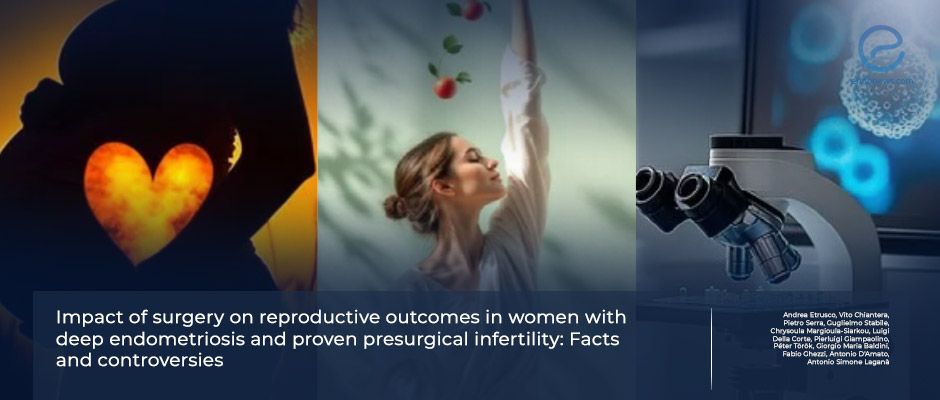
 By Selma Oransay
By Selma Oransay
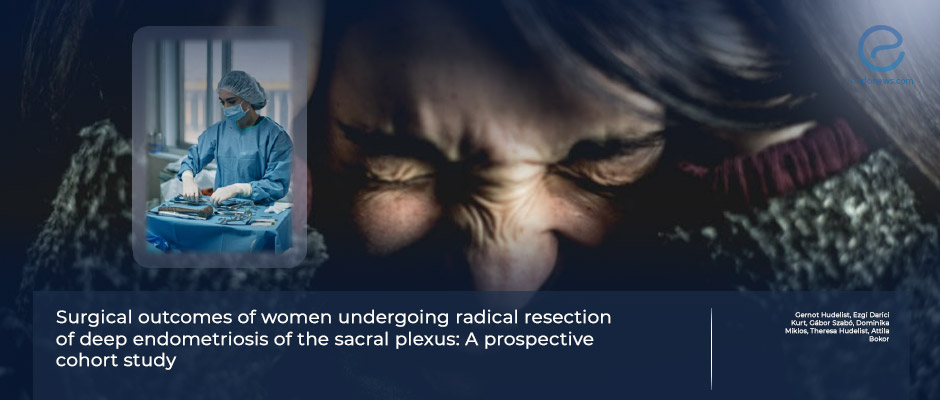
 By Hale Goksever Celik
By Hale Goksever Celik

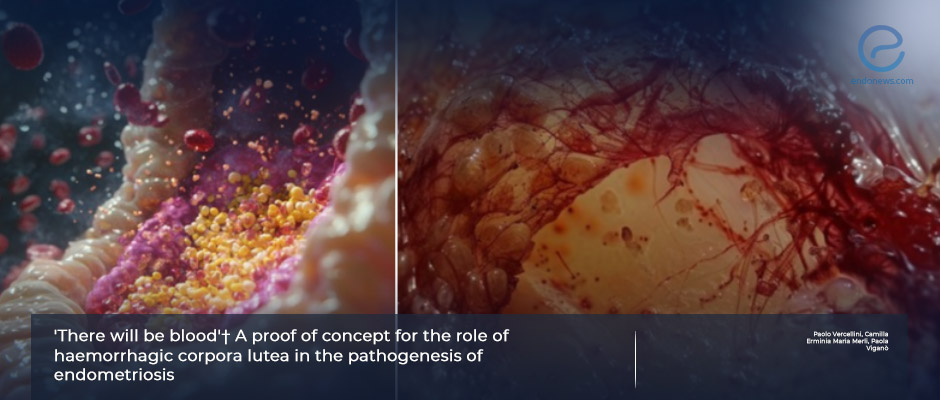



 By Özge Özkaya
By Özge Özkaya
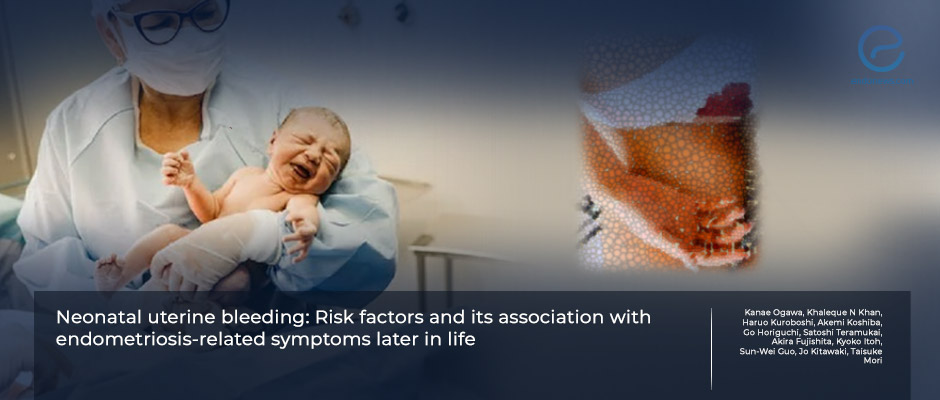
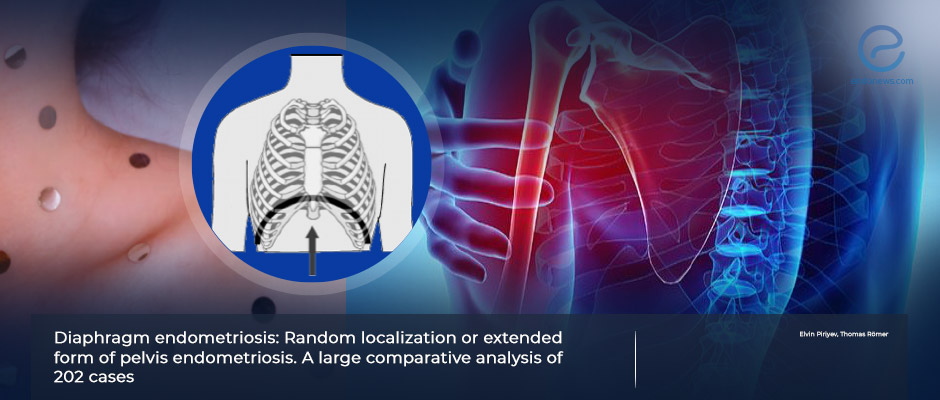
 By Nasuhi Engin Aydin
By Nasuhi Engin Aydin









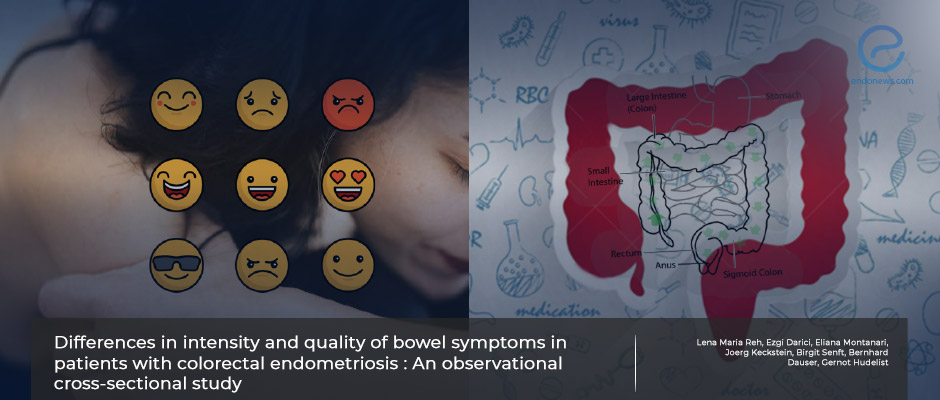
 By Eylül GÜN
By Eylül GÜN














 By Irem Onur
By Irem Onur

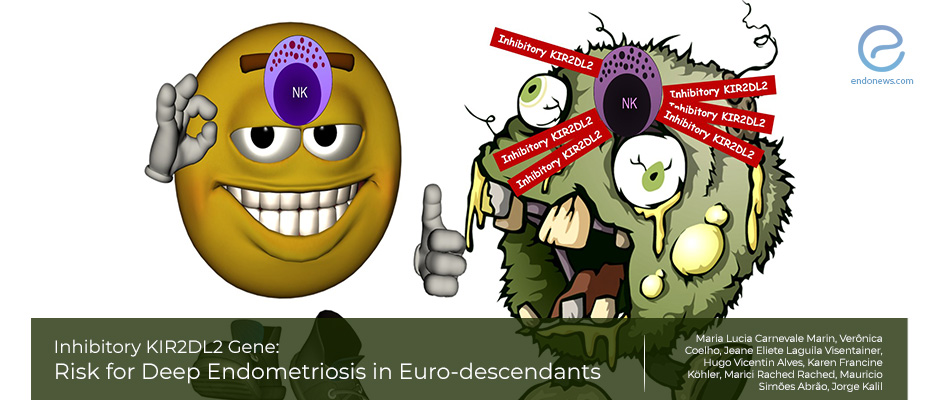
 By Yu Yu
By Yu Yu

 By Dr. Youngran Park
By Dr. Youngran Park
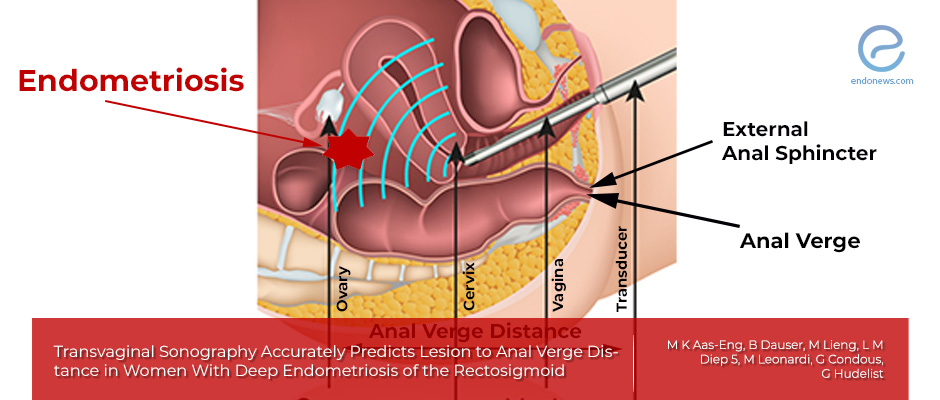
 By Timur Seckin
By Timur Seckin
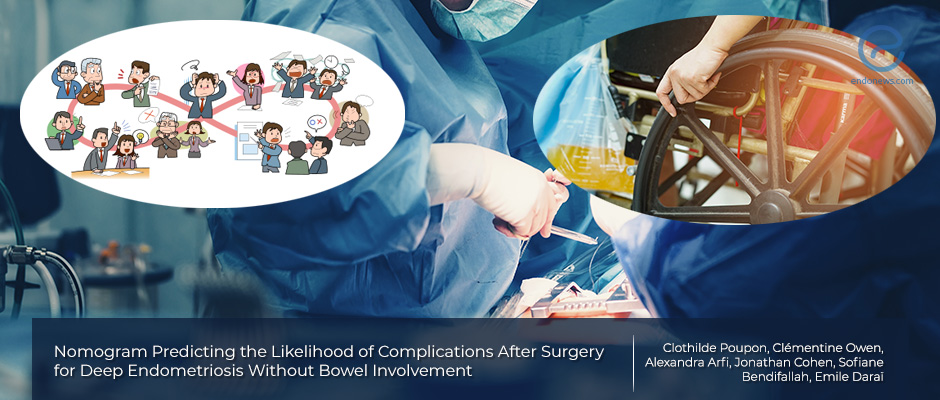

 By Demet Candaş Green
By Demet Candaş Green
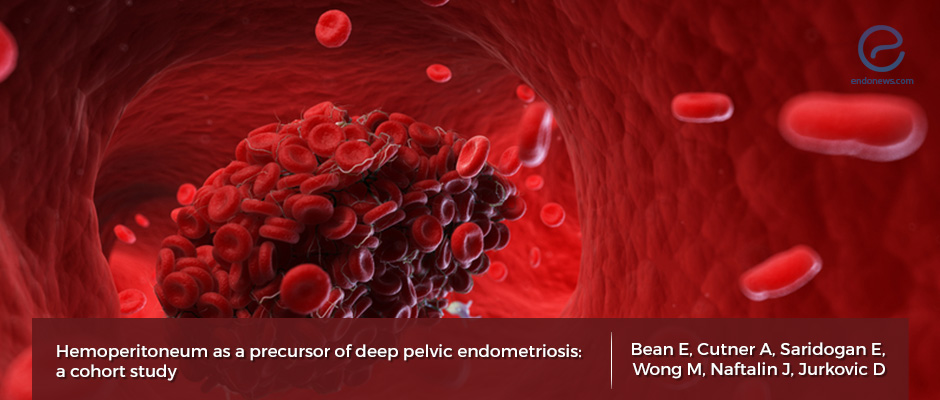


 By Murat Osman
By Murat Osman

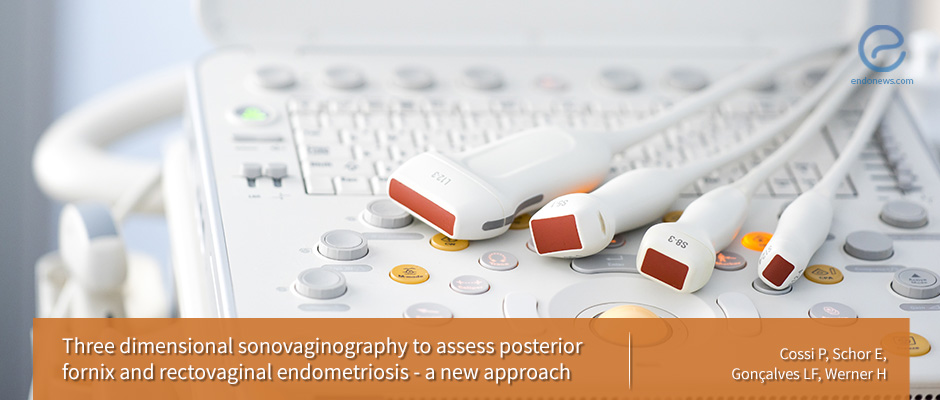




 By Kasthuri Nair
By Kasthuri Nair

 By Asli Bahadirli Talbott
By Asli Bahadirli Talbott